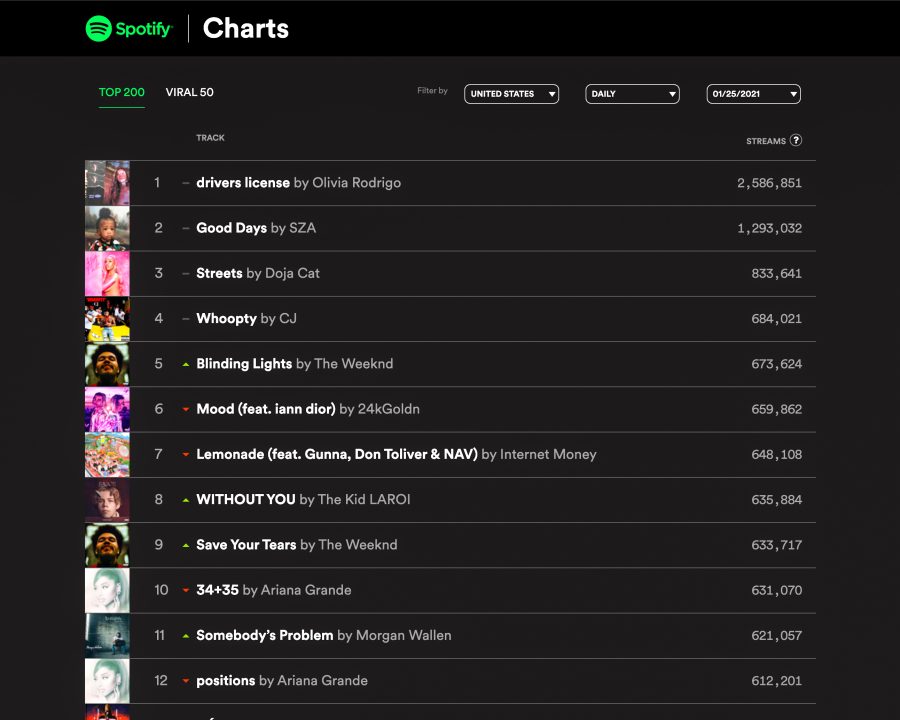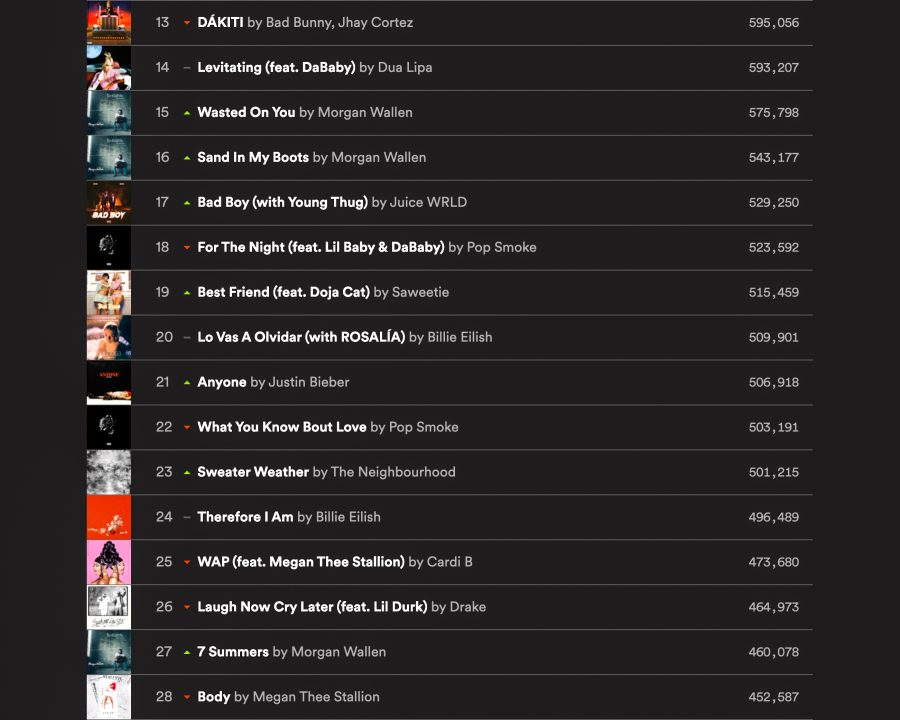Back in the day, you might have heard a new song on the radio, or while playing a mixtape your boyfriend made you in the car. Nowadays, chances are your first time hearing your new favorite song will be on an app, like TikTok, or on a Spotify playlist. Proof of this is evident in Spotify’s “United States Top 50” Chart: “drivers license” is at the top of the list, now with over 9 million daily streams (at the time of writing), and it came from a semi-unknown artist, Olivia Rodrigo, whose song blew up on TikTok. However, TikTok isn’t the only reason “drivers license” climbed to the tops of the charts. So, what really makes a viral song go so incredibly viral? To find the answer to this question, we must look at songs that have gone “viral” over the years.
Consider the so-famous-it’s-almost-infamous “Gangnam Style.” Most people could not accurately remember the lyrics of this song, but the tune and rhythm were remarkably catchy; the most important part, though, was “Gangnam Style’s” accompanying dance moves, originating in the music video and eventually taking the world by storm. And what about Drake’s “God’s Plan”? Everyone remembers the line, “I only love my bed and my mama, I’m sorry”, and will not soon forget it. “Good Days” by SZA has hovered at the top of the charts for some time, currently ranking at number two in the nation on Spotify, with over 1.2 million daily plays. Like Rodrigo’s “drivers license,” “Good Days” went viral on TikTok and managed to stay in people’s minds with the memorable verse: “Good day in my mind, safe to take a step out / Get some air now, let your edge out / Too soon, I spoke, you be heavy in my mind / Can you get the heck out?”
What all these viral songs have in common are three key ingredients: universal appeal, internet popularity on a particular site or application (if not multiple), and an extra golden element that makes it stick in people’s heads like gum. Most of these golden elements have already been named: “Gangnam Style’s” viral dance, the memorable and quotable “God’s Plan” lyric, the memorable and hum-able “Good Days” verse, and, in the case of Rodrigo’s explosive hit, drama. While there’s little dispute about the quality of “driver’s license,” there is no question that the song achieved more attention because it detailed the end to a public relationship and the jealousy of another one beginning.
What does “universal appeal” mean in the case of a viral song? Well, it may be impossible to pinpoint exactly what makes a song so enticing to your ears that you play it repetitively, but we can narrow it down. For one thing, it seems that only certain genres ever “go viral.” Take classical music, true indie, heavy metal, reggae, blues… when is the last time you’ve seen any of these genres at the top of the charts? It never happens, because it seems that these genres are not universally appealing—at least not to the majority of the population that uses the internet to listen to music. On the other hand, genres such as rap, pop, and dance-pop are always on the radio. Why are these genres universally appealing? Perhaps it’s not the music itself, but rather what is associated with the music. When one thinks of pop, they think of the longed-after celebrities that so often sing it. It is rare to know a popular pop song that has not been sung by a remarkably genetically-gifted individual with legions of fans. This indicates a certain shallowness of the genre- and hints that popularity in this genre is defined by elements other than music quality. Rap, on the other hand, is associated, or perhaps stereotyped, with a dangerous, exciting, untouchable lifestyle. If we look long and hard at these popular genres we might learn that people devote their ears to music not just for its quality, but also for the lifestyle it brings to mind.
Spotify Top US Chart for the last week of January 2021.






















































